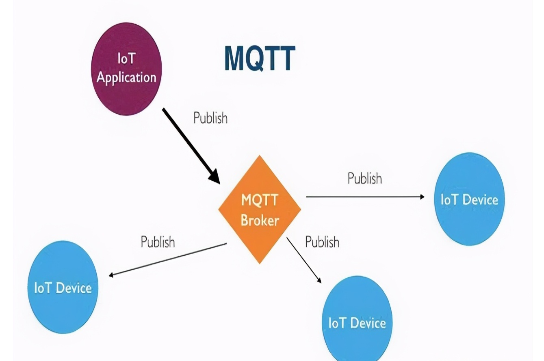11月 30, 2020
2202
MQTT is an Internet of Things transmission protocol. It is designed for lightweight publish/subscribe message transmission and aims to provide reliable network services for IoT devices in low bandwidth and unstable network environments. MQTT is a lightweight transmission protocol developed specifically for the Internet of Things. The MQTT protocol is specially optimized for low-bandwidth networks and devices with low computing power, so that it can adapt to various IoT application scenarios. At present, MQTT has clients on various platforms and devices, and has formed a preliminary ecosystem.

1. MQTT is simpler
MQTT is a message queuing protocol that uses the publish/subscribe message model to provide one-to-many message publishing, decoupling applications, and is easier to develop than other protocols;
2. MQTT network is more stable
Work on TCP/IP protocol; TCP/IP protocol provides stable network connection;
3. Lightweight
Small transmission, low overhead (fixed-length header is 2 bytes), protocol exchange is minimized to reduce network traffic; suitable for applications with low bandwidth and small data volume;
4. Easy to implement
The server program of the MQTT protocol is very mature, and system languages such as PHP, JAVA, Python, C, C# can all send relevant messages to MQTT;
5. Openness
The source code is open and can be used, which has further promoted the development of MQTT. Almost all open IoT platforms such as Baidu Cloud, Alibaba Cloud, and China Mobile onenet support MQTT;
To sum up
MQTT is a simple, stable, open, lightweight and easy-to-implement message protocol. It has wide applicability in information collection, industrial control, and smart home applications under the application of the Internet of Things;
Products supporting MQTT protocol:
E810 series: E810-DTU (1RS1E), E810-DTU (RS232)-V2.0, E810-DTU (RS485)-V2.0, E810-DTU-V2.0, E810-TTL-ETH02;
E840 series: E840-TTL-4G05, E840-DTU (4G-05), E840-TTL-4G04, E840-DTU (4G-04), E840-TTL-4G02, E840-DTU (4G-02);
Other models: EA01-S, E103-W02, E103-W02DTU.